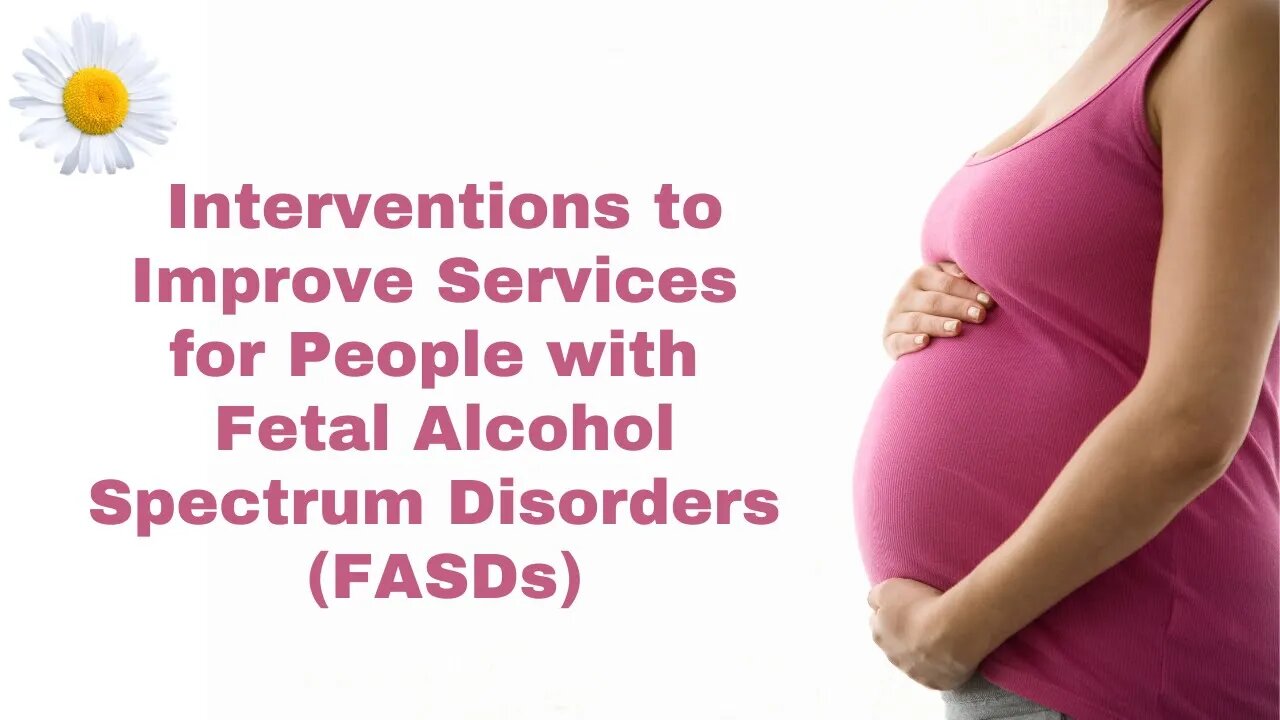Premium Only Content

Fetal Alcohol Spectrum Disorder in Mental Health and Criminal Justice
Want to chat with me? Join me at https://members.docsnipes.com/ For $10/month you get access to my daily tips for health and wellness and you can text chat with me privately.
CEUs available at: https://allceus.com/member/cart/index/product/id/956/c/
Fetal Alcohol Spectrum Disorders in Mental Health
and Criminal Justice
Instructor: Dr. Dawn-Elise Snipes
Executive Director AllCEUs.com, Counseling Continuing Education
Podcast Host: Counselor Toolbox & Happiness Isn’t Brain Surgery
Objectives
- Where to begin…
- Explore the scope of the problem
- Identify the impact of the impairments across life domains
- Discuss specific issues for adolescents
Stats
- National Institute on Alcohol Abuse and Alcoholism, the prevalence of FAS in the general population ranges from 2% to 5% for the entire continuum of FASD.
- 94% of individuals with an FASD also have a mental illness
- 73-80% of children with full-blown FAS are in foster or adoptive placement
- 61% of adolescents with an FASD experienced significant school disruptions
Stats cont…
- The prevalence of FASD in the child welfare system is approximately 17 to 19 times higher than that in the general population in North America (meta-analysis published online September 9 in Pediatrics).
- 12.8 is the average age children with an FASD begin having trouble with the law. (https://www.mofas.org/2014/05/fasd-and-the-criminal-justice-system/)
- 60% of people with an FASD have a history of trouble with the law
What is FASD
- FASD is not a diagnostic term, but is an umbrella term encompassing four categorical diagnostic entities:
- Fetal alcohol syndrome (FAS)
- Partial FAS
- Alcohol-related neurodevelopmental disorder
- Alcohol-related birth defects
Impact of Functional Impairment
- Problems in multiple domains interferes with treatment success, including inability to:
- Remember program rules or follow multiple instructions.
- Remember and keep appointments, or to get lost on the way there.
- Independently make appropriate decisions about treatment needs/goals.
- Appropriately interpret social cues
- Observe appropriate boundaries, either with staff or other clients.
- Attend to (and not disrupt) group activities.
- Process information readily or accurately.
- ‘Act one's age.’
- When indicators occur in any these domains (and particularly when they occur across multiple domains), it is worthwhile to apply the FASD 4-Digit Code Caregiver Interview Checklist (Astley, 2004b)
Special Considerations for Adolescents
- Evidence shows that adolescents will commonly exhibit learning and behavior challenges, especially in
- Adaptive function/getting along from day to day
- Remaining organized and regulated
- Learning information slowly (especially what is said to them)
- Tending to forget things they have recently learned
- Making the same mistakes over and over.
- Impulsivity/finding it hard to inhibit responses
- Social communication (leaving out important details/being vague).
- Suggestibility (and therefore easily influenced by others)
- Immature social skills. (too friendly/trusting,/difficulty recognizing dangerous situations.
Differential Dx
- There is some evidence for distinguishing between children with FASD and children with ADHD. Using the four-factor model of attention it has been shown that:
- children with FASD have difficulties with encoding (taking in and processing information) and shift (shifting attention (hyperfocus))
- children with ADHD have problems with focus and sustain. (Using Mirsky (1989) 4 factor model of attention)
- Distinguishing between attention-deficit hyperactivity and fetal alcohol spectrum disorders in children: clinical guidelines Neuropsychiatr Dis Treat. 2010; 6: 509–515.
Summary
- Additional modules will focus on topics including…
- Accommodations for the clinician to prevent exasperation and burnout.
- FASD in the criminal justice system
- Case management and Unmet needs for caregivers
Video by Dr. Dawn Elise Snipes on integrative behavioral health approaches including counseling techniques and skills for improving mental health and reducing mental illness.
Please SUBSCRIBE and click the BELL to be notified when we release new videos and when Dr. Dawn Elise Snipes is going live each month. Access additional benefits by JOINING here https://www.youtube.com/channel/UCAE3JJi8tX7gfhZEXCUGd_A/join
Cheap CEUs are available for this presentation at https://allceus.com/counselortoolbox
AllCEUs reports LMHC CEUs to CEbroker automatically for Florida LMHC, LCSW, LMFTs and CNAs
Want to listen to it as a podcast instead? Subscribe to Counselor Toolbox Podcast https://pod.link/1120947649
-
 52:04
52:04
DocSnipes
1 year agoRevealing How Neurotransmitters Influence Addiction Recovery and PAWS
242 -
 2:09:52
2:09:52
Jewels Jones Live ®
1 day agoTRUMP'S GOLDEN AGE | A Political Rendezvous - Ep. 105
43K23 -
 1:14:28
1:14:28
Michael Franzese
16 hours agoThe Hidden Cause of LA's Deadliest Fires in 2025?
58.5K109 -
 3:59:45
3:59:45
Bitcoin Sports Network
9 hours agoMax & Stacy Invitational Day 2 Part 1 - LIVE from El Salvador
132K11 -
 1:34:30
1:34:30
The Criminal Connection Podcast
5 days ago $2.32 earnedEL PACO: Gypsy Family Wars, Bare Knuckle Boxing, Assassinations and Spirits!
56K4 -
 51:43
51:43
Brewzle
1 day agoI Found Some AWESOME Stores Bourbon Hunting in Des Moines, IA
48.2K3 -
 1:16:54
1:16:54
Kyle Rittenhouse Presents: Tactically Inappropriate
1 day ago $3.74 earnedReplacing Matt Gaetz Pt. 2
31.1K14 -
 16:08
16:08
inspirePlay
1 day ago $0.90 earnedCan You Sniff Out the Golf Imposters Before They Wreck the Score?
26.3K4 -
 22:57
22:57
RTT: Guns & Gear
1 day ago $4.82 earnedPSA Dagger vs. Bear Creek Arsenal BC-102 | The Better Pistol For The Poors
48.6K11 -
 8:28
8:28
MichaelBisping
11 hours agoBISPING: "Islam WILL RETIRE after UFC 311!?" | Makhachev Wants Belal or Shavkat at WELTERWEIGHT
31.3K5